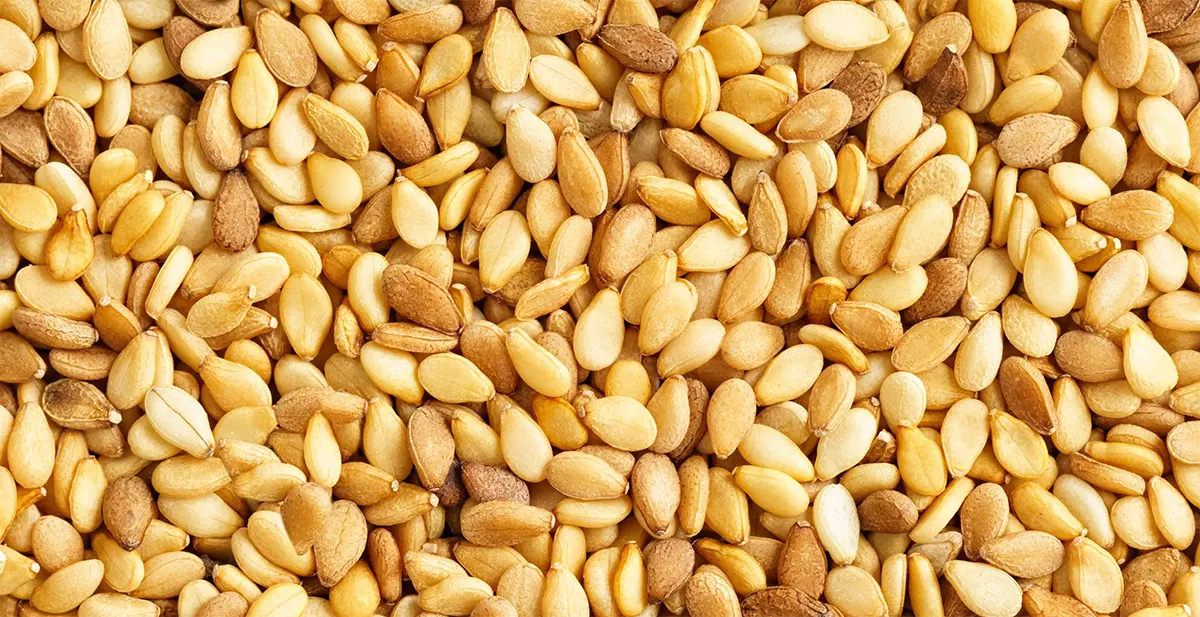
black cumin oil

Black cumin oil (Nigella Sativa Seed Oil) - certified organic
Black cumin, a member of the buttercup family, is not related to the spice plant caraway or cumin. This annual, delicate, herbaceous plant is native to Western Asia, North Africa, and India. Black cumin oil is extracted from the seeds, which resemble small, miniature briquettes. Black cumin oil has a pleasant, typically spicy scent.
Black cumin oil – Natural helper for skin problems such as pimples, acne and eczema
This dark oil, which is very skin-friendly, is considered a beauty elixir, especially for pimples, blemishes, and blackheads at any age. Its effectiveness is well researched and proven. It has been used in medicine for thousands of years. Even the ancient Egyptian Queen Nefertiti, who was famous for her beauty, is said to have rubbed her skin with black cumin oil. At myrto, we use cold-pressed organic black cumin oil from Egypt, which is considered the highest quality.
Valuable nutrients for healthy skin
Cold-pressed black seed oil contains over 50% linoleic acid. This polyunsaturated fatty acid is part of the skin's barrier function. Linoleic acid improves the skin's moisture retention, maintains its elasticity, and strengthens the skin's protective lipid layer. The most important active ingredient in black seed oil is thymoquinone, which protects cells from oxidative damage and strengthens the skin's immune system against allergies. Black seed oil also contains important trace elements and vitamins, including magnesium, B vitamins, vitamins C and E (tocopherol), selenium, and biotin. Beta-carotene, a precursor to vitamin A, and folic acid (vitamin B9) in black seed oil accelerate cell renewal. Zinc, which is also present, protects the skin from oxidative damage caused by free radicals and reduces sebum production.
Effects and benefits of black cumin oil
Black seed oil strengthens the skin barrier and protects it from moisture loss. It regulates sebum production and dissolves dead skin cells. Black seed oil inhibits inflammation, relieves itching, and reduces allergic skin reactions.
Black seed oil is often used to support various skin conditions due to its anti-inflammatory, antibacterial and antioxidant properties:
Acne – Its antibacterial and anti-inflammatory properties combat acne-causing bacteria and reduce blemishes. Black seed oil is particularly effective in treating late-onset acne, which can be caused by stress, hormonal imbalance, or nutritional issues.
Neurodermatitis (atopic dermatitis) and eczema – Black cumin oil strengthens the skin barrier, relieves inflammation and dry, cracked skin, and promotes healing in neurodermatitis and eczema.
Psoriasis – Black seed oil is successfully used in psoriasis to relieve redness, itching, and inflammation; it supports the healing process.
Fungal infections (e.g. athlete's foot) – The antifungal properties of black seed oil can help fight fungal infections.
Couperose and rosacea – Black cumin oil can reduce redness and inflammation and soothe the skin.




